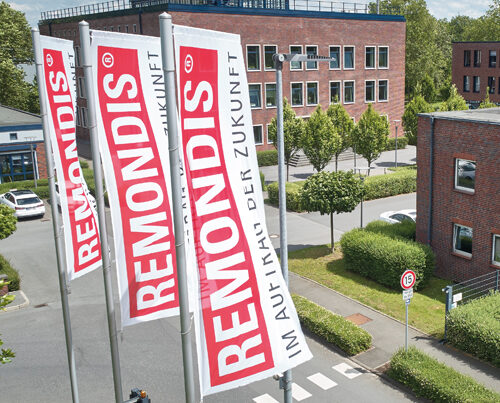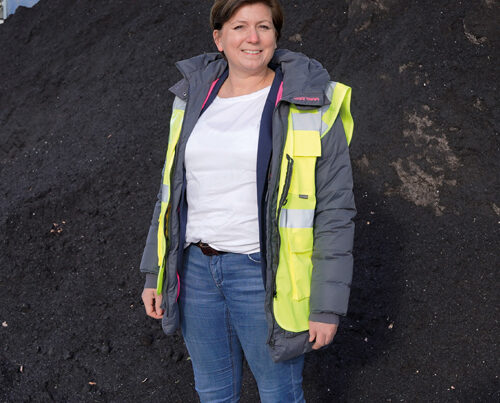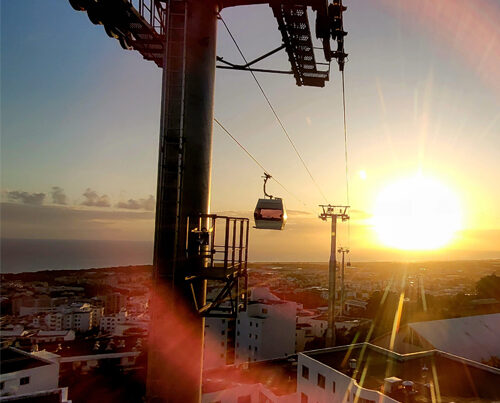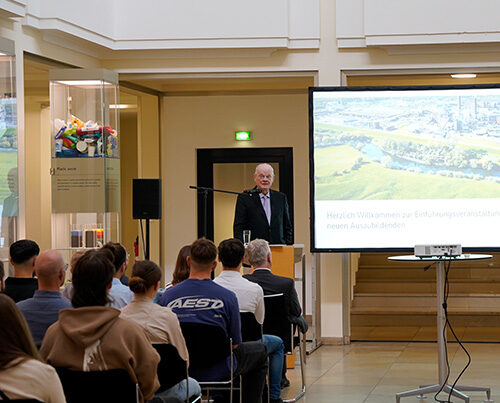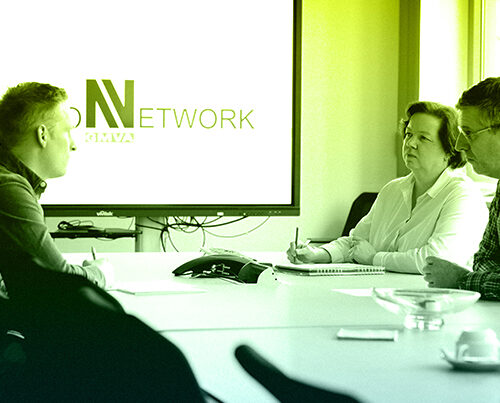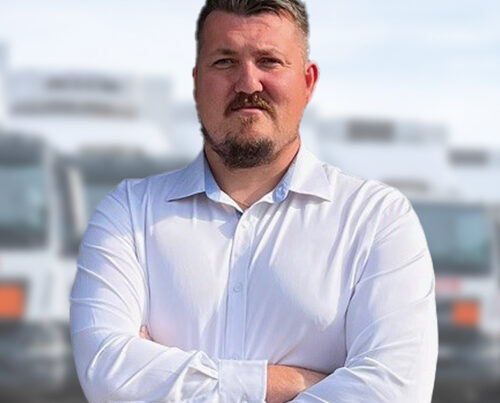Dr Nabila Rabanizada is head of research and development at REMONDIS Recycling and one of the leading plastics recycling experts in Germany. There is one thing, however, that very few people know about her: Nabila’s path has been long and arduous. Her story began back in Kabul in Afghanistan when the mujahedeen seized power for the first time. In the following interview she talks about her difficult escape from the country and her arrival in Germany and encourages young people to follow their dreams and make the most of the opportunities given to them.
RE:VIEWS: Dr Rabanizada, before we take a look at the subject of plastics, could you tell us a little about your childhood and your career to date?
Dr Nabila Rabanizada: I was born in Kabul in 1984, the third of five children. I have an older sister and brother and two younger brothers. Our parents were worried pretty much from the start about what our future would be like in Afghanistan. The path seemed to be mapped out – particularly for us girls. While our father was high up in the police force, my mother had never gone to school and didn’t know how to read or write. They didn’t want their daughters to have the same future. When the government fell in April 1992, the mujahedeen began focusing their attention more and more on my father. An ever greater number of people found themselves being persecuted and attacked. My parents very quickly realised that they had only one option: if they wanted to stay safe and lead a free life then they had to leave the country.
RE:VIEWS: How did you get out of Afghanistan?
Dr Nabila Rabanizada: It seemed very much like a cloak-and-dagger operation when we escaped the country and crossed the border into Pakistan in June 1992 with just two suitcases and no official documents. Once in Pakistan, we first had to get used to the new situation and then secretly plan our next steps. My youngest brother was four at the time and my oldest brother twelve. It was a completely new situation for us kids and not an easy one. We weren’t able or allowed to trust anyone anymore.
After trying several times to escape via a variety of routes, we finally made it to Moscow by train in 1992, a few days before New Year’s Eve. We had to effectively build up our lives from scratch with just 200 dollars in our pockets and practically no knowledge of Russian. Slowly we created a new life for ourselves, learned the language and eventually we were allowed to go to school. An almost happy life, away from danger.
CV
2020 – present:
Head of Research & Development, REMONDIS Recycling GmbH & Co. KG
2019 – 2020:
Head of Development, Berner Kunststofftechnik GmbH
2018 – 2019:
Head of Application Development, Der Grüne Punkt – Duales System Deutschland GmbH
2015 – 2018:
Project Engineer, Der Grüne Punkt – Duales System Deutschland GmbH
RE:VIEWS: Almost?
Dr Nabila Rabanizada: Yes, it was a happy life until the war in Chechnya broke out in 1994. People were suspicious of us because of our dark hair and once again we were no longer safe. Again we had to decide whether to flee or not.
RE:VIEWS: And then you came to Germany?
Dr Nabila Rabanizada: My sister Nagela had always wanted to become a doctor ever since she was a small child. My parents always felt it was very important to fulfil our wishes. And so we looked for a country where we could study and where the university degrees are internationally recognised. What’s more, after everything we’d gone through, we wanted to go a country where there was little likelihood of a war breaking out in the near future. And so we chose Germany – also because some relatives of ours had moved there at the beginning of the 80s.
RE:VIEWS: How did you escape and what happened after you got here?
Dr Nabila Rabanizada: We had to plan everything all over again: we had to find a middleman and a route to get to Germany. My father had to stay in Moscow to begin with because we had so little money. My mother set out with us five children on her own. The first route we decided to take was via Ukraine at the beginning of 1995. We were picked up at the Russian-Ukrainian border, though, put into prison for 48 hours and then sent back to Moscow.
Our second attempt was to take a route via Poland in May. We were taken close to the German-Polish border by car and we then had to sit it out for two days because of the heavy rain. After that, we went on foot through a wood to the river at the border. A huge obstacle as we couldn’t swim and there was a very strong current. But what choice did we have? I still remember the moment when we were pushed into the water and left to our fate.
RE:VIEWS: But you made it.
Dr Nabila Rabanizada: Yes, we did. We ended up at Berlin’s main train station with just the clothes we were standing in, dirty and completely disoriented. The sun was just coming up when we got there. After waiting there for hours and hours, we were picked up by a relative at 5pm and taken to Kassel. We then spent 40 days in temporary accommodation before moving to Baunatal.
To begin with, we weren’t allowed to mention the route we’d taken nor betray the fact that we spoke Russian. Otherwise we would have been sent back there.
RE:VIEWS: You said that your siblings knew what they wanted to do from a very early age. How did you get into your career?
Dr Nabila Rabanizada: I went to school after we arrived in Germany and was put in a Year 4 class. My first day at school was not much fun as no-one really knew how to deal with me. It was difficult to communicate as we could only use gestures. Fortunately, though, I learned German really quickly and eventually made friends. Our family was able to settle down and finally put down roots.
After I left school in 2004, I decided to study mechanical engineering in Kassel, majoring in plastics and recycling technology. I got a lot of practical experience during my course – something that has proven to be very useful during my professional career.
I then enrolled at the University of the Bundeswehr in Munich so that I could do my doctorate at the mechanics institute in its aerospace engineering department. During this time, which lasted from 2012 to 2015, my focus was very much on materials science and analytics. Having majored in plastics and recycling technology, I got to know the waste management sector while still at university. As I was interested in this field, I wanted to learn more about it and applied for a job in the industry. And so my career began as a project engineer at Der Grüne Punkt. That was a really instructive start to my career as I was able to take part in and help shape many prestigious projects from scratch. And as my experience grew so, too, did my responsibilities: in 2018, I was put in charge of application development.
“Having majored in plastics and recycling technology, I got to know the waste management sector while still at university.”
Dr Nabila Rabanizada, Head of Research & Development, REMONDIS Recycling
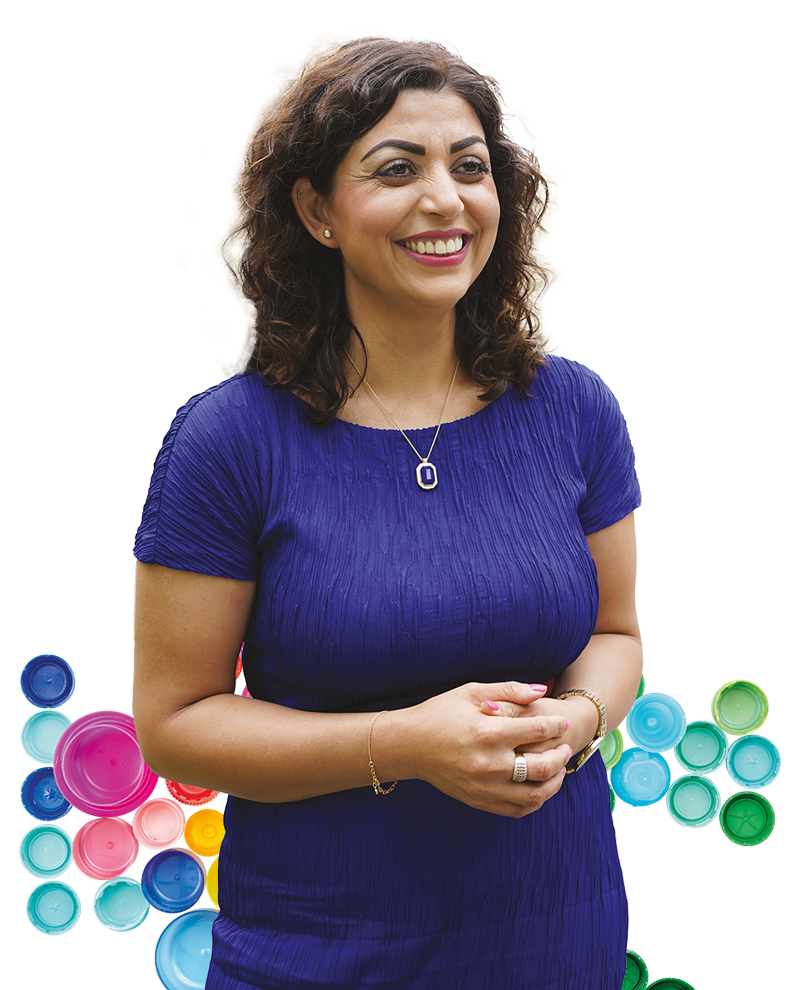
RE:VIEWS: And so how did you find your way to REMONDIS (something we’re very happy about of course!)?
Dr Nabila Rabanizada: I was able to gather a great deal of practical experience while I was working at Der Grüne Punkt and this has been very useful for my career to date. I felt that I needed to make the most of new opportunities and expand my know-how. A good way to do this was to change employers. There was one thing that made this job particularly appealing: back then REMONDIS Recycling did not have its own R&D department. That meant that I didn’t have to follow in anyone’s footsteps and could set up and shape the department from scratch. I’ve been at the company for three years now and am very proud of everything that we’ve managed to achieve so far.
RE:VIEWS: What do you find so fascinating about plastics?
Dr Nabila Rabanizada: Their complexity. Plastic is an incredibly versatile material. And because it’s so versatile, we need highly complex technologies to recycle it. If operating such complex technology means we can provide industry with high quality recycled raw materials and close material life cycles, then that’s a big positive.
My job has become my passion. Working with our customers to optimise their production processes and make their systems more sustainable means that I am constantly facing new challenges. And this is what makes my work so interesting.

Just under 6.5 million tonnes of waste plastics are generated in Germany every year.
RE:VIEWS: Many interviews have a series of fun, quick-fire questions. Are you ready?
Dr Nabila Rabanizada: Sure, let’s start.
RE:VIEWS: Coffee or tea?
Dr Nabila Rabanizada: Coffee, of course. To boost my energy levels.
RE:VIEWS: A holiday question: the seaside or the mountains?
Dr Nabila Rabanizada: The seaside. I feel more at home there.
RE:VIEWS: Mechanical or chemical plastics recycling?
Dr Nabila Rabanizada: Well, from where I’m sitting, I have to choose mechanical recycling! All efforts made by the circular economy must be focused on conserving natural resources, cutting carbon emissions and minimising environmental pollution for future generations.
We’ll have to wait and see what other kinds of technologies will be added to the mix. Each new technology must be checked objectively from a strictly scientific angle and the factors I just mentioned must be taken into consideration as well. If additional, environmentally compatible processes are made available, then there won’t be a ‘battle’ for the various resources and sources of energy. Such battles must definitely be avoided!
RE:VIEWS: The growth in e-mobility has led to the petrochemicals sector looking for new fields of business and they’re focusing increasingly on chemical recycling. Is this a game changer?
Dr Nabila Rabanizada: The first question that needs to be answered here is where the huge volumes of input material should come from. Just under 6.5 million tonnes of waste plastics are generated in Germany every year. This is a very small amount compared to Germany’s consumption of crude oil, which lies at around 103 million tonnes. Even if we narrow this down to the amount of oil needed by the petrochemicals industry to make chemical products from suitable crude oil fractions, we’re still talking about almost 17 million tonnes. It’s simply not possible to replace this with waste plastics. What’s more, chemical recycling is not officially recognised as a form of materials recycling at the moment. Our focus at REMONDIS Recycling is, therefore, clearly on mechanical recycling. Having said that, we do have other company divisions that are looking into chemical recycling as it’s important that the company, as a whole, remains open to new technologies. Maybe chemical recycling will turn out to be a sensible and practicable addition to mechanical recycling for a small selection of plastics.
REMONDIS Recycling
All of the activities at REMONDIS Recycling revolve around valuable raw materials. This REMONDIS division specialises in three material streams: glass, old textiles and, above all, plastics. The company offers comprehensive, full-service solutions to enable plastics that have been collected from private households, take-back schemes, commercial businesses and industrial production processes to be recycled and reused. Supplying collection equipment is part of its portfolio as is delivering a whole range of services, including pre-sorting materials on site at the customers’. Moreover, it operates state-of-the-art facilities to transform the material into products with defined levels of quality, e.g. ground products and pellets made of HDPE or PET. The company has both the high levels of technical know-how and the sure instincts needed to be able to offer its customers a reliable supply of top quality goods.
RE:VIEWS: You gave a press conference with a number of people at the last IFAT in Munich including Reinhard Schneider, the managing partner of Werner & Mertz. You talked about a joint initiative that aims to close plastic life cycles as fully as possible by finding practical, concrete uses for recycled plastic. The packaging used by Werner & Mertz for its ‘Frosch’ cleaning agent is already made exclusively from recycled plastics. Where are you at today?
Dr Nabila Rabanizada: The really good collaboration work with Werner & Mertz – and with other market players who are increasingly turning to sustainable packaging – has shown us that we need to invest in even better sorting and recycling processes. The packaging industry needs recycled plastics that are as pure as possible, i.e. plastics that have been separated strictly according to type. Very few companies want mixed plastics. And so this is the path that we’re heading down. In June 2023, for example, we opened a new sorting plant in Bochum that also deploys artificial intelligence.
At the same time, we need to meet the exact requirements of our customers and adjust the specifications accordingly. Professional customer communications is, of course, also one of our tasks to ensure that we can find and implement the best possible recycling strategy for everyone involved.
RE:VIEWS: What do you believe still needs to be done to close plastic life cycles around the world and reduce the impact of plastic on our environment?
Dr Nabila Rabanizada: Besides the fact that our sector should, of course, intensify its efforts to offer our know-how and services abroad, there is, unfortunately, still a lack of suitable collection schemes in many countries. And if the waste isn’t collected – let alone collected separately – and if there’s no recycling
infrastructure worth mentioning, then we shouldn’t be surprised when waste plastics end up polluting the environment. There’s still much to do at international level.
It’s my job and the job of my colleagues to make the best possible technology available and keep the most effective sales channels open for our customers.
The good news is that the trademark owners and manufacturers of so-called fast moving consumer goods are becoming more and more aware of the fact that ‘design for recycling’ is the key to a well-functioning circular economy and sustainable products and packaging. We’ve been supporting those calling for the implementation of strict ecodesign criteria for a long while now, as have our associations in Berlin and Brussels. It’s good to see that this message is, slowly but surely, getting through to manufacturers and consumers. Much more knowledge needs to be transferred and many more discussions need to be held, though, to speed up this process.
RE:VIEWS: One last question: if you could travel back into your past, what advice would you give your eight-year-old self in Kabul?
Dr Nabila Rabanizada: Don’t be afraid and never give up! There’s no such thing as equal opportunities in the country I was born in. It’s a tough fate for the women and girls living there. My mother is illiterate and never went to school. Education, though, is key to being able to take part in public life. It was always her biggest wish for her children to be able to live freely no matter what their gender. And that meant they had no choice but to flee the country.
My mother brought up five children in a foreign country and all five of them went to university. My sister fulfilled her dream and now works as a doctor. The rest of us studied either industrial engineering or mechanical engineering. Nagela and I are the first women in our family to go to university and get a PhD. If our parents had not decided to leave Afghanistan, our lives would have been very different indeed.
RE:VIEWS: Dr Rabanizada, many thanks for taking the time to speak to us!
Image credits: © REMONDIS







